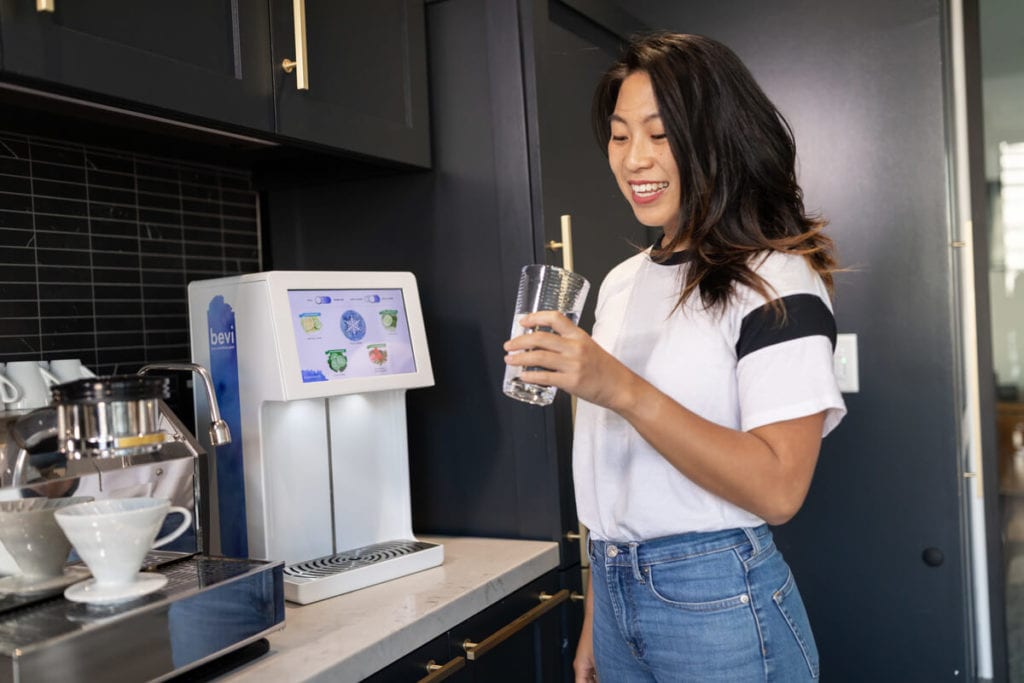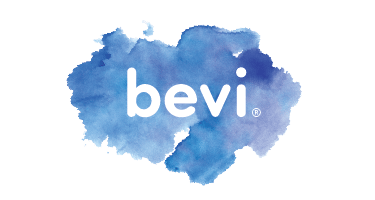How 4 Office Ninjas Are Championing Workplace Conservation

Bevi’s mission: unbottle the future by replacing mass-produced bottled beverages with refreshing smart water dispensers.
Editor’s Note: This article was written in partnership with Bevi, makers of the eponymous smart water dispenser. Bevi’s support of OfficeNinjas and the Ninja community helps us continue to provide valuable education, resources, and events.
We know that Ninjas save the day on the regular, but can they save the world?
Actually, they’re already working on it.
Environmental conservation issues like climate change, pollution, and mountains of non-recyclable waste are complicated problems that impact the entire planet. Who better than a Ninja to take a seemingly insurmountable task and break it down into smaller, more manageable ones?
We spoke with four Ninjas who have decided to be part of the solution by leading conservation efforts in their workplaces. Their initiatives run the gamut, from switching to reusable kitchen mugs to seeking out green business certifications.
What they’ve all realized is that every change — no matter how big or small — matters. They see the impact in their office’s consumption, their budget’s bottom line, and even in their team’s morale.
If you’ve been thinking about making a few changes in your own office and could use some Ninja inspiration, keep on reading.
Being the Catalyst for Change
Zoila Primo, Office Manager at Aquent in Los Angeles, CA
Living in LA, a city already in a constant struggle with fires and drought conditions, I wanted to make sure we were actively doing our part to improve the environment.
Improving Aquent’s sustainability efforts was never officially part of Zoila Primo’s job description, but one week into her role as office manager, she knew she wanted to make a change.
“For me, this was personal,” she says. “Living in LA, a city already in a constant struggle with fires and drought conditions, I wanted to make sure we were actively doing our part to improve the environment.”
Zoila started with the kitchen — switching from a single-serve coffee machine to a traditional one with a built-in grinder to eliminate plastic waste and create accessible grounds. A colleague now uses the grounds for fertilizer at a local community garden. Next came the kitchen paper waste. She stopped ordering napkins (!) and swapped the existing paper towels for ones made from recycled material.
After success in the kitchen, Zoila looked at other places in the office to optimize. Aquent was already separating and recycling trash, but recyclable paper was still being thrown away. So she added paper bins in high-traffic areas — next to printers, in every supply closet, and in the kitchen — making it so easy for her coworkers that they couldn’t help but recycle.
Her subtle changes were met with minimal resistance. “I didn’t really sense much hesitance, just a lot of curiosity as to why these efforts weren’t made sooner,” she says.
The impact — from both a financial and waste-reduction perspective — has been considerable.
“I’ve been able to cut my supply ordering down to twice a month (sometimes even once a month), and we’re saving around $300 per month with the cut of paper supplies. Our building manager proudly reported that we have cut our waste in half since July,” says Zoila.
Looking Out for Missed Opportunities
Alicia Amico, Front Office Coordinator at WellPet in Tewksbury, MA
My biggest concern regarding the environment is the amount of waste that we produce daily without realizing it, from our gum wrappers to K-cups.
Like Zoila, Alicia Amico saw that the biggest opportunities to improve conservation efforts were in WellPet’s kitchen. “My biggest concern regarding the environment is the amount of waste that we produce daily without realizing it,” she says. “Our office has multiple daily food deliveries that arrive in boxes, bags, and Styrofoam containers, all of which then fill our trash.”
Alicia knew she couldn’t control how her local restaurants and caterers were packaging their deliveries, so she found simple, easy ways to reduce the office’s carbon footprint. Replacing all paper and plastic cups with glass tumblers and installing a Bevi smart water dispenser helped her 100-person team significantly cut back on bottle and can waste. Now her team can get sparkling, flavored water throughout the day, without having to recycle anything afterwards.
She also replaced the kitchen’s supply of paper to-go cups with a collection of ceramic mugs. And she began working with the Grounds to Grow program, which turns used single-serve cups into recycled products like aluminum cans and shipping material. Program participants empty used pods into specially ordered boxes, which are then picked up and delivered to a recycling facility.
As anticipated, some employees missed the convenience of having access to a stack of paper and plastic cups, but Alicia used proactive communication to ease the transition. “I sent out a notice ahead of time with a positive spin about how we are helping the environment and how we are saving money that can be used toward other employee benefits,” she says.
She also made sure the reusable mugs and tumblers were available before removing the disposable cups. It didn’t take long for her team to adapt. “Our employees are now in the habit of bringing their tumblers with them and many have now purchased personal tumblers that show their personality,” she says.
Teaching the How and Why of Conservation
Jordan Hunter, People & Culture Manager at charity: water in New York, NY
Get your team to understand the “why” behind any changes, so they go along with the change and become an advocate on the office’s behalf.
Before Jordan Hunter became the first office manager at charity: water, no single employee had ever held the responsibility of overseeing the office or managing its conservation efforts. “Leaving the lights on constantly, overusing paper goods, and not recycling were just some of the practices that I sought to take on when I started,” she says. “I absolutely hate wasting resources.”
Jordan made the office more sustainable in a variety of ways, including subbing in real dishes, glassware, and cutlery for disposable ones and installing light sensors, high-efficiency appliances, and blackout shades.
But one of the biggest changes she made was creating an interactive quiz to help her coworkers better understand recycling guidelines. While they were on board with upping their efforts, “they just weren’t always aware of the ways they were contributing to the problem,” Jordan says.
“When we started with new recycling bins, it was clear that my team didn’t know what bin they should toss their trash in. I would see salad containers unrinsed and in the general waste bin, or I’d see used paper towels in the paper bin,” she says.
“During our weekly staff meeting, I put up a quiz on the screen and asked everyone to shout out which bin they thought an item should go in.” Quarterly quizzes and regular reminders helped the message stick.
Jordan’s advice for other Ninjas striving to make their workplaces more eco-friendly? “Start with the low-hanging fruit and small wins,” she advises.
And, even though you’re leading the charge, make sure everyone feels engaged in the process. “Get your team to understand the ‘why’ behind any changes so they go along with the change, and become an advocate on the office’s behalf.”
Partnering With Local Organizations
Jennifer Sharma, Operations Manager at Angaza in San Francisco, CA
It’s tough to start a process like this, but you don’t have to feel like you’re alone.
Angaza’s mission is to help businesses sell clean energy products in off-grid markets such as Sub-Saharan Africa, Latin America, and Southeast Asia. So it only made sense to Jennifer Sharma (and her eco-conscious colleagues) for Angaza to pursue a San Francisco Green Business certification.
Pursuing such a certification is a significant undertaking. In fact, one of the reasons Jennifer transitioned from a part-time role to a full-time position was to help manage it. “The process required both behavioral and process changes on the part of the team — committing to following certain recycling and composting standards, for example — as well as office changes to use greener cleaning products and energy star compliant appliances,” Jennifer explains.
In addition to having the full backing of her coworkers (“I’m incredibly lucky to work with a team who was already committed to sustainability,” she says), Jennifer received invaluable support and guidance from the San Francisco Green Business Program and those who manage it at the Department of the Environment. “They worked with us and helped us when we ran into roadblocks and were always responsive and willing to share more information,” she says. “Working with them felt like a true partnership rather than simply checking the boxes for a certification.”
Jennifer and her team’s efforts have had an impact on Angaza’s bottom line and its overall morale. “We’ve definitely saved on our energy bill by not having phantom power draw, and our new policies have meant less paper and paper product waste around the office,” she says. “I’d say the biggest impact, though, has been the emotional one of having a team that practices what it preaches.”
To get started, Jennifer encourages Ninjas to seek out organizations dedicated to workplace sustainability — whether they’re local programs like a green business certification or national initiatives like Bike-to-Work Day. Even if you can’t meet all of their requirements, chances are they will provide tips and connect you with even more resources. And she recommends looking at the organizations you already work with. Many utility companies, for example, offer programs that incentivize workplace sustainability efforts.
“It’s tough to start a process like this, but you don’t have to feel like you’re alone,” Jennifer says.
Your Turn
Do you have a workplace conservation story to tell? Do these Ninjas’ stories inspire you to make some changes at your office? Let’s exercise the power of collective intelligence! Use the comments to share inspiration, advice, resources, or questions.
And check out our article on innovative ways to make your office more sustainable for even more ideas.
We’re proud to have Bevi as an OfficeNinjas partner. Bevi provides companies with healthy alternatives to soda in the form of pure, filtered water that comes in a slew of flavors that can be made still or sparkling. Their modern water cooler uses a one-touch dispensing system so every employee can create a customized drink on the spot. Sip, savor, and reduce the office’s carbon footprint.
Interested in bringing Bevi to your workplace? Click here to learn more.

In my office, we have both a TerraCycling and composting program. It’s made our snacking guilt-free and has significantly reduced the waste we send to the landfill each week. I’ve also introduced bulk snack containers and reusable snack bowls help us reduce our wrapper waste even more!